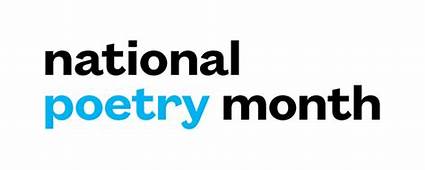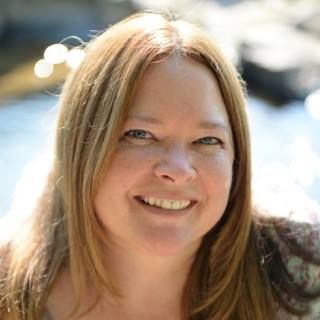This Sunday, the Columbia Museum of Art will be putting on the second installment of its new Write Around Series, featuring poets Joy Priest and Tim Conroy in conjunction with the opening of the CMA’s newly designed collection galleries.
The Write Around Series is the latest project of CMA’s Writer-in-Residence, Ray McManus. For him it is “an opportunity for poets and writers to come to the CMA in pairs, walk the galleries, and write individual responses to the artwork.”
The idea came from an old CMA program called Frisson, which was created by Charlene Spearen and Leslie Pierce. “As a participant and audience member of Frisson, I simply loved it – the opportunity to come to the museum and generate new material,” McManus said, “and then to share that material with a receptive audience of literary folks and art folks and folks who were just curious what the hell a Frisson was; it gave me a space to grow in.”
Knowing how special this program was to him, McManus was confident the new Write Around Series would be just as important. “When we approach art, any art, I believe a conversation takes place – multiple conversations, really,” McManus continued, “When art speaks to us, when we are able to listen to art speaking to us, we can engage in a conversation that takes us through the art and beyond it. And each time we come back to that art, that conversation can be stronger, and completely different.”
By bringing local writers and poets to create work based on art, this program allows patrons the opportunity to participate in this conversation, “not THE conversation, but A conversation. A way of understanding the artwork,” McManus said, “For the everyday patron, seasoned art historian, perhaps the artist, and certainly the writers, I can’t think of a more immediate and hopefully rewarding experience. We no longer become patrons, art historians, artists, and writers. We become a community.”
This time around, local poets Joy Priest and Tim Conroy are sharing their work. “Joy and Tim are amazing. I’ve been a fan of their work for years, so perhaps for personal reasons, I reached out to them,” McManus continued, “But I also wanted the two of them together because the range of their voices together will make for one hell of a reading. Both are powerful poets on the page, but they also have a commanding presence on the stage."
Hailing from Louisville, Kentucky, Priest is currently an MFA candidate in poetry at the University of South Carolina. She is the recipient of the 2018 Gregory Pardlo Fellowship at The Frost Place and has received support from the Hurston/Wright Foundation, the Bread Loaf Writers' Conference, and the Fine Arts Work Center at Provincetown, among others. She is formerly an associate poetry editor for Narrative Magazine and senior editor emerita at Yemassee Journal. Her poems have appeared or are upcoming in Blackbird, Callaloo, Four Way Review, The Rumpus, Best New Poets 2014, Best New Poets 2016, and The Breakbeat Poets.
Conroy is a former special education teacher, school administrator, and vice president of the South Carolina Autism Society. His work has been published in journals, magazines, and compilations including Fall Lines, Jasper, and Marked by Water. In 2017, Muddy Ford Press published his first book of poetry, Theologies of Terrain, edited by Ed Madden, poet laureate of the City of Columbia. A founding board member of the Pat Conroy Literary Center in Columbia.
Conroy was influenced to start writing from a young age by his older brother and sister, but he didn’t pursue writing until later in life. Three years ago, he was influenced by a presentation from Kathleen Robbins on her book of photographs of the Mississippi Delta, Into the Flatland. “I take this book home, and I’m inspired to write poems from the book,” Conroy said.
Shortly after, Robbins asked him if she could use his poem in her upcoming installation, and it all kicked off from there. “I was always the no guy,” Conroy continued, “But I finally said yes, and a transformation has happened.”
Since then, Conroy has explored many themes with his poetry. For this event Conroy is presenting 11 new poems in contingence with the new CMA galleries. “Most of the poems have turned out to be narrative poems,” Conroy said, “Some part of the art sparked a story, and I derived poems from them.”
He continued to say that just because the art inspired the stories, it doesn’t mean the poems are what you would necessarily expect. Conroy elaborated, “There’s one piece there that I can tell was created to make laughter, but for me it recalled one of my worst memories, and I wrote to that.”
To hear Priest and Conroy read, come to the CMA this Sunday the 18th at 3:00 p.m. The event is free with admission, which is free for members and $6 (or less) for general entry. For more information on the event or the gallery, check out the CMA’s website at: www.columbiamuseum.org
The Write Around Series has already had two wonderful writers speak and will continue even after this Sunday into the Spring. A full 2018-2019 schedule is provided below (bolded dates yet to come):
2018-2019 Write Around Series
· April 8, 2018 – Julia Liz Elliott, Monifa Lemons, Maya Marshall, and Jillian Wiese*
· September 30, 2018 — Ed Madden and Ray McManus
· November 18, 2018 — Joy Priest and Tim Conroy
· February 10, 2019 — Nathalie Anderson and Len Lawson
· March 17, 2019 — Cindi Boiter and Jennifer Bartell
* Nothing to Hide: Fours Writers Responding to Renee Cox and Imogen Cunningham
Follow The Jasper Project on Facebook and on Instagram @the_jasper_project
for more updates on local artists and events!



































